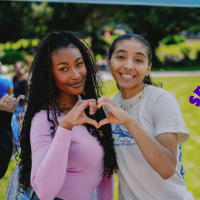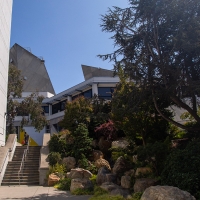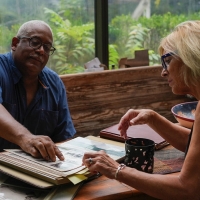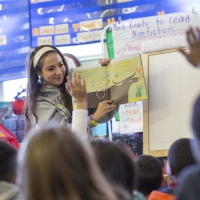Hackers designed ‘tech for good’ at this year’s SF Hacks
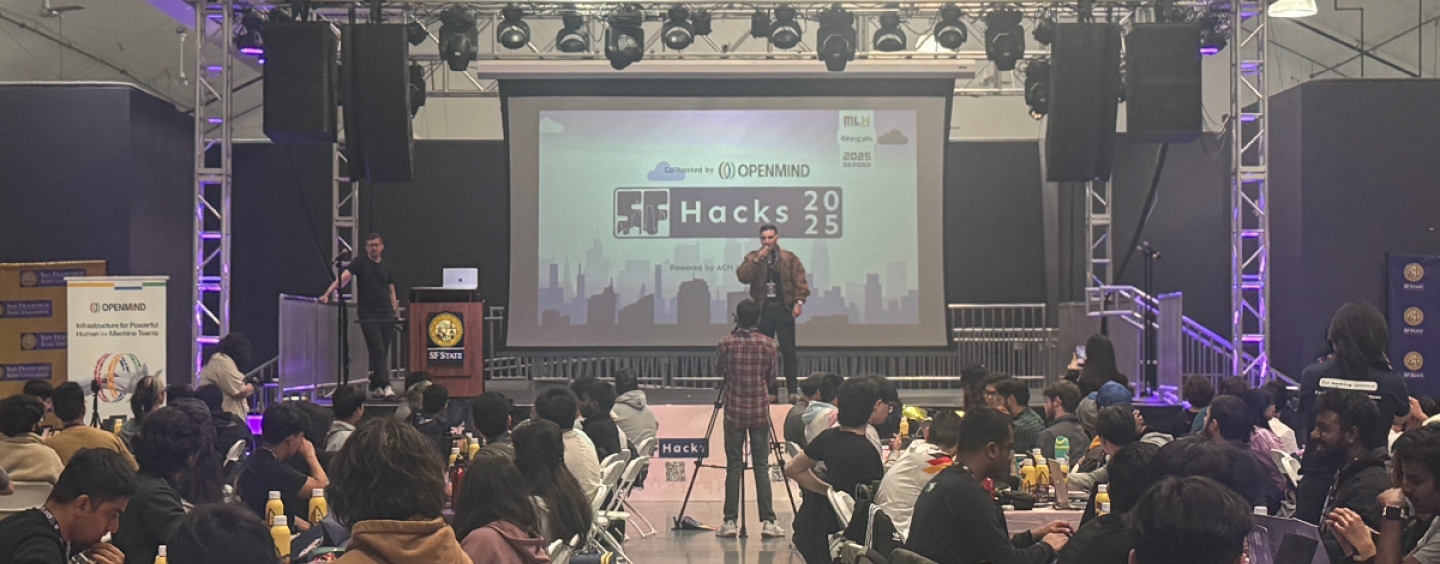
Projects tackled memory loss, data protection, mental health and more
After successfully reinstating San Francisco State University’s in-person hackathon last year, SF Hacks kept the momentum rolling by jumping into planning their 2025 event and making it bigger and better.
On April 4 – 6, 300 hackers convened at SFSU’s Annex 1 for the annual SF Hacks hackathon. Participants came from all over the country, with over 80% coming from all over California and 30% returning from SF Hacks 2024. The attendee number jumps to 430 when considering volunteers, judges, mentors and more. The event almost hit the venue limit on the first day.
At its core, SF Hacks is a 48-hour hardware and software building competition, but that description doesn’t fairly encapsulate the event. It is really a community affair with mini events, panels, workshops, professional and social networking, fun activities like Bob Ross painting and tennis, complimentary food … and it’s a totally free event to boot.
“Of course, we have the innovation aspect that is with all hackathons. But something we feel is important and strongly about here at SFSU is our social activism,” said SF Hacks president Marco Garcia, a Computer Science sophomore, of this year’s “tech for good” theme.
“With so many different ways to harness technology, it’s so important we have a guiding principle and that is to build for good,” said SF Hacks Director Ria Thakker during the opening ceremony, encouraging hackers to think more deeply about what it means to build for good. “What are your preferred use cases, whose perspectives you’re considering and how to utilize your knowledge to give back to your community."
One project that placed in several categories was a robot called Remi that helps people with memory loss. When Remi sees a familiar face, it recalls and shares details about that person to the user. An SFSU team won the Best AI Emerging Technology prize with their project Secure Sense. This project helps prevent information leaks by detecting and blocking or masking sensitive data when people use generative AI tools like ChatGPT or Gemini.
Although it can be daunting, it’s rewarding to push yourself on your own terms to see what you can do, explained SF Hacks Sponsorship Chair Keith Curry, a senior double majoring in Computer Science and Biology. “We take all these courses and learn all these skills. But a lot of times, the curriculum doesn’t test the extent of our ability. It just tests our ability to adhere to a curriculum."
However, students don’t need to be experienced coders, or even computer scientists, to participate. There are tools and mentors available to help beginners learn technical skills. This year, SF Hacks also highlighted the cross-disciplinary collaboration needed to build projects, said SF Hacks Vice President Ashley Ching, a Computer Science senior.
“We tried to get many people outside of technical roles, like product managers, researchers, UX designers and other roles more geared towards user experience or full vision,” she explained. “We aimed to get those people involved so people can learn from them.”
More than 17 industry and academic sponsors supported this year’s event. SF Hacks 2025 was the first SF Hacks to secure a title sponsor and co-host OpenMind through the single largest contribution in SF Hacks history, the team explains. Some sponsors supported specific tracks: SFSU’s Lam Family College of Business sponsored the “best start-up pitch” track, rewarding the top team a $1,000 seed fund. In total, 32 judges awarded over $7,000 in prizes (monitors, air fryers, cash and more) across different challenge tracks and overall competition.
All of this — event logistics, finances, marketing, sponsorship and all other details — was organized by students. The core SF Hacks leadership includes over 40 students who collaborate with another 11 SFSU student organizations.
“I’ve been here for two years. I was roped into it by my friend. Now I’m too deep into it and can’t quit,” laughed Thakker, a third-year Computer Science major.
“When you plan it, it’s very satisfying to see everything that you worked for and seeing the impact,” added SF Hacks Treasurer Kurt Balais, a Computer Science senior.
Learn more about SF Hacks events, this year's projects and the Department of Computer Science.
Tags
